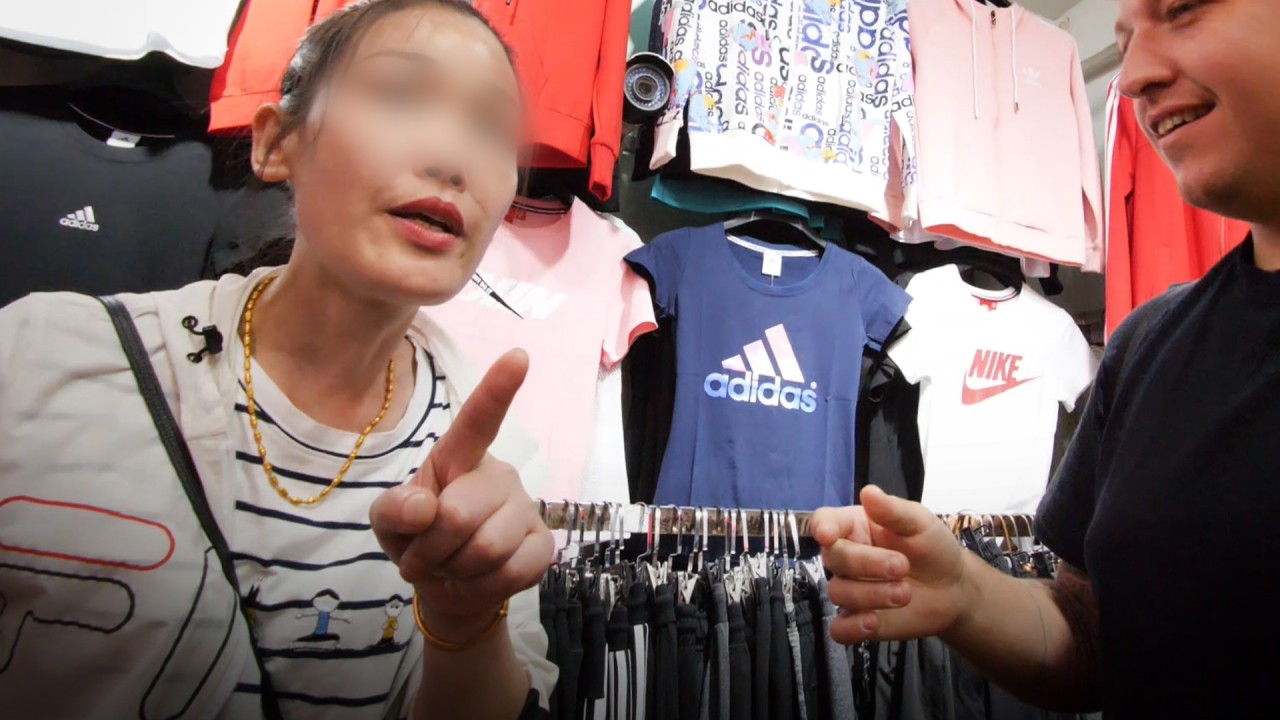
China hits back at ‘irresponsible’ US report labelling it top market for fake and pirated goods
- The US named six online and nine bricks-and-mortar Chinese platforms in its 2021 Review of Notorious Markets for Counterfeiting and Piracy
- China ranked 12th on 2021 Global Innovation Index, commerce ministry points out in calling for an objective approach from the US
This comes after Washington named six online and nine bricks-and-mortar Chinese platforms in its 2021 Review of Notorious Markets for Counterfeiting and Piracy – as violating US trademarks and copyright law.
“China does not recognise the conclusion of the report and we sternly oppose the irresponsible actions by the US,” the Ministry of Commerce in Beijing said on Friday.
Produced by the US Trade Representative’s office, the list included two first-time Chinese entrants – the AliExpress and WeChat e-commerce ecosystems, which joined long-time fixtures Baidu Wangpan, DHGate, Pinduoduo and Taobao.
The report said AliExpress and Taobao had some of the industry’s best anti-counterfeiting tools but were marketing more fake goods, and that removing dodgy sellers from the sites had reportedly become more difficult.
Global counterfeiting costs the US economy about US$29.2 billion annually, and China was the world’s largest producer of fake goods, according to the report.
In a response posted on its website, China’s Ministry of Commerce said the problem of counterfeiting and piracy had long existed in the United States. It was regrettable that the US administration frequently used the so-called Notorious Market Report to accuse other countries, the ministry said, accusing the US of double standards as there were counterfeiting and piracy activities within its borders as well.
Pointing out that China had ranked 12th on the World Intellectual Property Organisation’s 2021 Global Innovation Index, it said the US report should “comprehensively and objectively reflect on the efforts and progress made by the Chinese government and enterprises in the protection of intellectual property rights, and make a fair evaluation to avoid undue negative impact on enterprises”.
Garments, electronics, footwear, and fashion accessories headed the list of fake goods seized by US customs, the 56-page US report said, with China the top country of origin “as well as the country with the greatest number of products made with forced labour, including state-sponsored forced labour”.
“The operators know their operations are illegal and therefore take measures to evade detection,” it said. As an example, it cited Chinese-made masks and other Covid-19 protective equipment manufactured in “unsterile conditions, including in sweatshops previously used to make other types of counterfeit goods”.
Thursday’s report also found that WeChat – Weixin in China – which claimed 1.2 billion users globally last year, had become an increasingly convenient conduit for buying imitation products. This took place through its “seamless” links between social media and e-commerce sites selling sham goods, including its “Moments” and “Mini programmes” features.
“Punishments often involve little more than a brief suspension,” the report said.
Cloud storage service Baidu Wangpan was cited for the widespread sharing of pirated films that – even when removed – could quickly reappear.
DHGate, which primarily sells counterfeit goods wholesale to companies outside China, has added five inspectors and 3,400 keywords flagged by its vetting process, but numerous complaints continue.
Thursday’s report – part of Washington’s annual Special 301 review monitoring global intellectual property protection – has been broken out separately since 2010 to highlight foreign violators.


